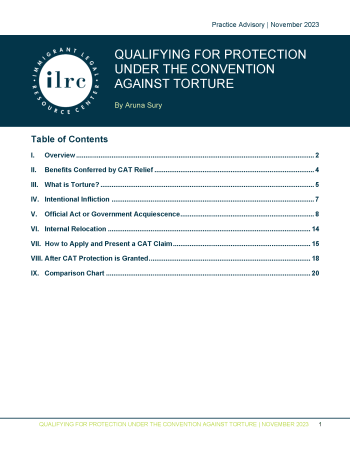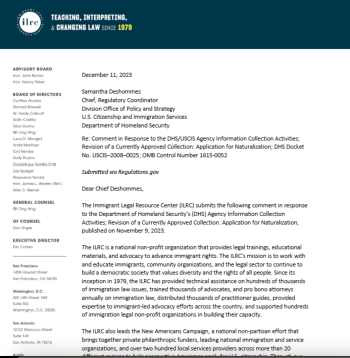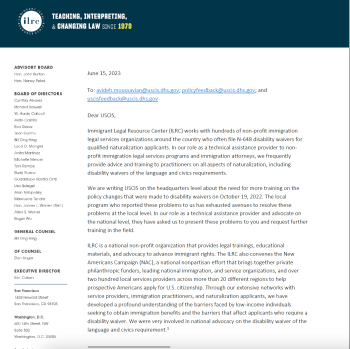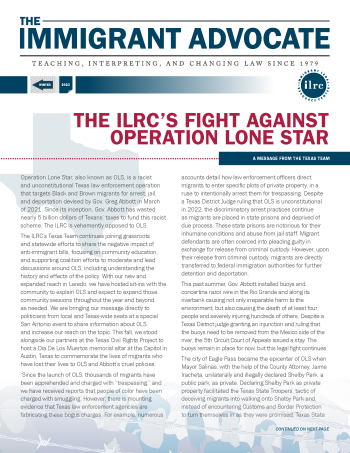
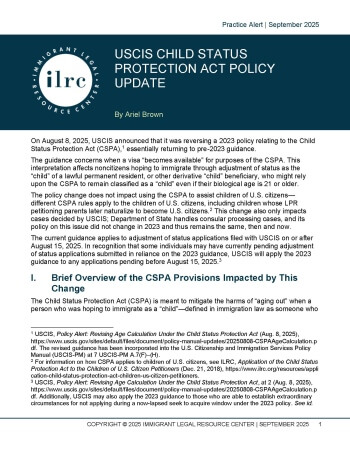

Community leaders, organizers, and activists are welcome to use this full slide deck as provided, or select the slides that are applicable to your presentation needs.
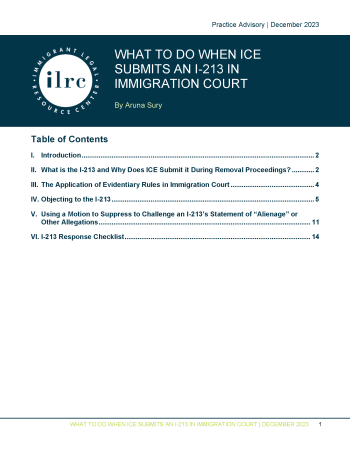
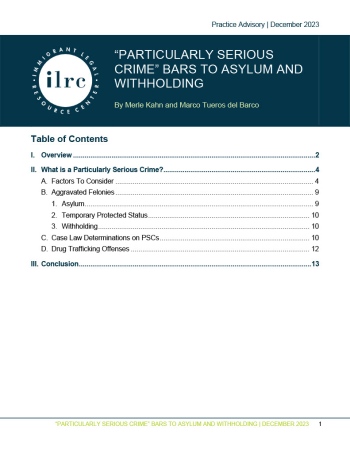
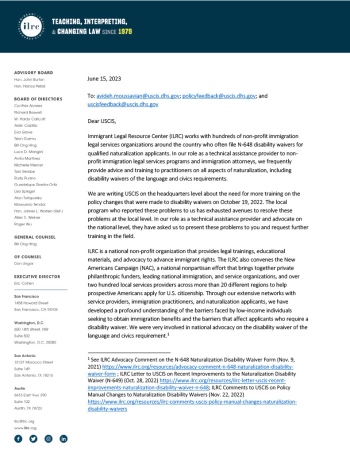
Giving Tuesday 2023

The Immigrant Legal Resource Center is excited to participate again in the international philanthropic movement, Giving Tuesday. Giving Tuesday is the first Tuesday after Thanksgiving, and we invite donors and supporters to make a financial contribution to the ILRC in support of our mission to work with and educate immigrants, community organizations, and the legal sector to continue to build a democratic society that values diversity and the rights of all people. To do so, you can use the form below.
What does giving to the ILRC on Giving Tuesday mean? It means that your donation on Tuesday, November 28 will help immigrants and their families stay together in this country as engaged residents and thrive. Since 1979, the ILRC has become a central hub for various coalitions of experts and leaders working to build a more just landscape for our diverse immigrant communities. We have focused our programs, resources, and partnerships toward assuring that the immigrant community, legal practitioners, and community-based organizations are educated, prepared, and engaged in the discourse around law and policy.
A few ILRC guiding values:
- We engage in our work using a racial justice and economic justice lens.
- We work with coalitions and center impacted clients as part of our work.
- With immigrants increasingly in the crosshairs of draconian measures and racist and xenophobic legislative initiatives, our victories have evolved in meaning and impact. People’s rights do not stop once they cross a border and it is our collective duty to see to it that fair protections be set for everyone, including those who are most vulnerable.
Show your support for the ILRC by making a gift on Tuesday, November 28, 2023 by using the form below.
Thank you!
